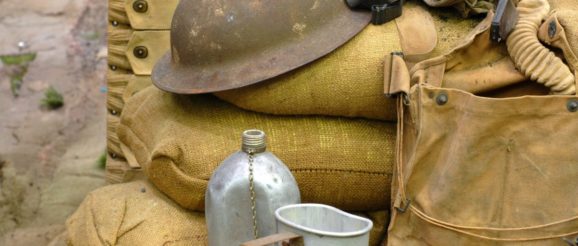When innovation doesn’t equal improvement

This is the web version of Brainstorm Health Daily, Fortune’s daily newsletter on the top health care news. To get it delivered daily to your in-box, sign up here.
I imagine a decent number of you have seen the Sam Mendes’ World War I drama 1917, which depicts the insanity of trench warfare. So keep the movie (or any other WWI drama) in mind when thinking about this: The helmets used by soldiers in the first World War were just as effective as modern combat helmets in protecting soldiers from overhead blasts, according to a new study by Duke University researchers. Surprised? I was too.
Biomedical engineers at Duke’s Pratt School of Engineering found that pretty much all helmets were effective at numbing the effects of blunt force trauma to the head and warding off shrapnel. But some of the century-old helmets fared even better at handling certain types of blasts.
“While we found that all helmets provided a substantial amount of protection against blasts, we were surprised to find that the 100-year-old helmets performed just as well as modern ones,” said lead author Joost Op ‘t Eynde in a statement accompanying the report.
And, in some cases of protecting the brain against shock waves created by nearby and overhead blasts, the old school helmets actually offered more protection than their modern counterparts.
Here’s how the engineers came to their conclusions: They strapped various helmet types on the heads and necks of dummies, which were also outfitted with “shock tubes” that emulated the effect of an overhead explosion on a soldier’s head. The specific magnitudes of the shocks were calibrated to various types of shells historically used in combat.
The pressure that made its way to the crown of a dummy’s head was then used as a proxy for determining how risky a blast might be for brain health. According to the researchers, the test’s top performer was the 1915-era French “Adrian” helmet design, which bested both German and British rivals, as well as modern day, advanced combat helmets.
It just goes to show that, sometimes, you can still take plenty of public health lessons from history.
Enjoy your Valentine’s Day. We’ll be taking a short break for Presidents’ Day on Monday, but will be back in your inboxes with more on Tuesday, February 18.
In the meantime, read on for the day’s news.
Sy Mukherjee
[email protected]
@the_sy_guy
